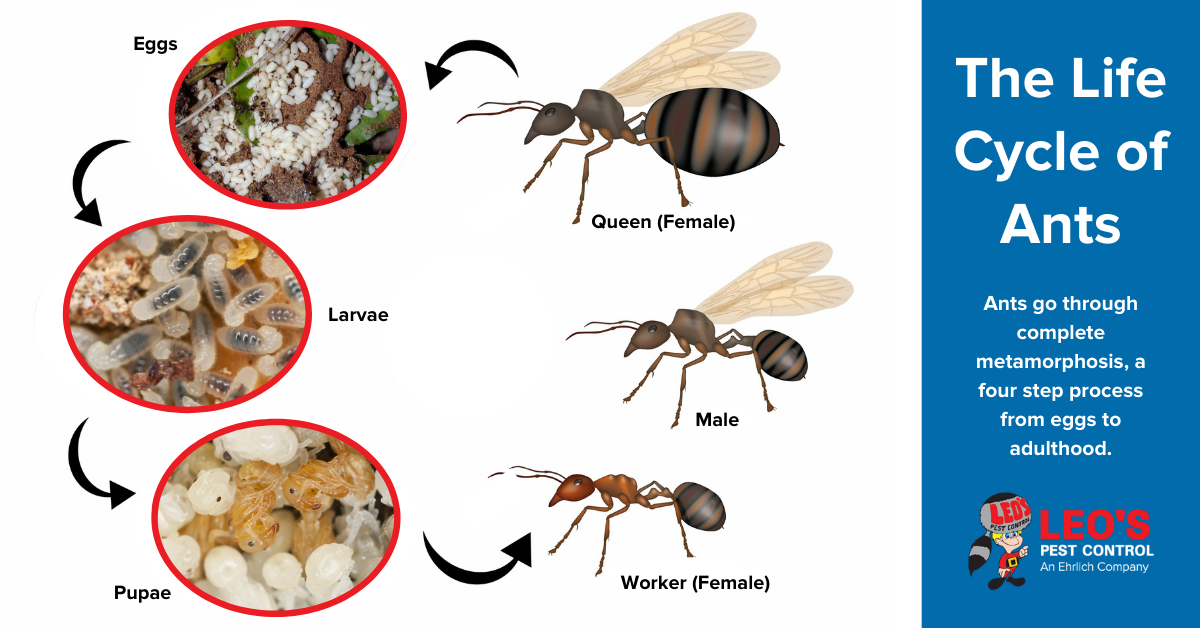The life cycle of ants is a mystery to some—they conduct most of their business underground and seem to appear in our home out of nowhere. Like many kinds of insects, ants live fascinating and intricate lives in their colonies. The experts at Leo’s Pest Control are here to give you a look inside their lives and teach you about their development and differentiation. Read on to learn!
The Life Cycle of Ants
Ants undergo a process known as complete metamorphosis, during which they progress through four distinct stages of life. The anatomy of an ant changes through these stages. The ant life cycle progression goes as such:
- Eggs: Ant eggs are tiny, soft ovals that are only about 1mm in diameter. Their eggs are coated in a sticky substance that allows worker ants to carry multiple at a time when relocating.
- Larvae: At this point in their life, ant larvae are eating as much as possible. They have no eyes or legs and require a constant food supply to continue to grow.
- Pupae: This stage occurs when the larvae have received enough nutrients and are ready to transform. They grow legs and antennae folded against their bodies as they lie dormant.
- Adults: Adult ants emerge once their bodies have fully formed. Male adults grow wings, while females grow stronger mandibles for working. Queens form from females who were fed the most during the larval stage.
Depending on the species and their environment, this whole process can take a few weeks to several months.

Need help with Ants?
Click the button below to leave your information.
How Long Do Ants Live For?
Ants live for different durations of time depending on multiple factors. For starters, some ants never make it past the egg stage. Excess eggs are eaten by colony members for extra nutrition in some cases. The ant lifespan for males is only a few weeks, and their sole purpose is to reproduce with queens. The ant lifespan of females is longer, fas they spend time finding food for the colony and maintaining the nest and its growing ants.
Queens spend their lives reproducing and laying eggs—up to millions of them in some cases! In a perfect environment, an ant queen can live for several decades, far longer than their worker or reproductive nestmates.
Want to Learn More About Ants?
If you have any questions about ant species here in Bristol TN or the ants that you’ve found around your home, don’t hesitate to reach out to your local pest control company. Our ant experts at Leo’s Pest Control are well-versed in the habits of all ant species in our area as well as the anatomy of ants, and can help teach you how to keep them out of your home all on your own. Contact us today for a free quote on ant control or more information on our services!
Back to Ant Exterminators – Control – RemovalLife Cycle of Ants in Bristol TN
Serving Tennessee & Virginia
